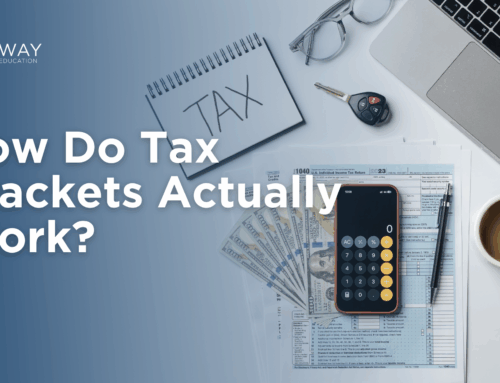Have questions about credit scores? We’ve got answers! Managing your credit score can feel like a complex task, but understanding the basics is key to your financial wellness. In this blog, we’ll cover frequently asked questions about credit scores, from how they’re calculated to tips on improvement. Clear up any confusion and get the knowledge you need to manage your credit effectively.
Understanding Credit Scores and Reports
What is a Credit Score?
A credit score is a numerical representation of your creditworthiness. It ranges from 300 to 850, with higher scores indicating better credit. Credit scores are used by lenders, landlords, and even some employers to assess the risk of lending to or hiring you. Your score is calculated based on your credit history, which includes your payment history, the amount of debt you owe, the length of your credit history, new credit accounts, and the types of credit you use.
What is a Credit Report?
A credit report is a detailed record of your credit history. It includes information about your credit accounts, such as credit cards, mortgages, and loans, as well as your payment history, outstanding debts, and public records like bankruptcies. Credit reports are maintained by the three major credit bureaus: Equifax, Experian, and TransUnion. Lenders use this report to determine your creditworthiness.
What Is the Difference Between a Credit Score and a Credit Report?
A credit score is a numerical summary of the information in your credit report. While the credit report contains detailed information about your credit history, the credit score condenses this information into a single number that reflects your overall credit health. Think of the credit report as the full story and the credit score as the summary.
Checking, Monitoring, and Managing Your Credit
How Can I Check My Credit Score?
You can check your credit score through various services, some of which are free. You can request a free credit report once a week from all three credit reporting agencies by visiting AnnualCreditReport.com.
What is a Good Credit Score?
Credit scores typically fall into the following ranges:
- Excellent: 800-850
- Very Good: 740-799
- Good: 670-739
- Fair: 580-669
- Poor: 300-579
A score of 700 or above is generally considered good and can help you qualify for better financial products and terms.
How is My Credit Score Calculated?
Credit scores are calculated using several key factors:
- Payment History (35%): Your track record of on-time payments is the most significant factor.
- Amounts Owed (30%): This looks at the total amount of credit you’re using compared to your total credit limit, known as your credit utilization ratio.
- Length of Credit History (15%): The longer your credit history, the better your score.
- Credit Mix (10%): A variety of credit types, such as credit cards, mortgages, and auto loans, can positively impact your score.
- New Credit (10%): Opening multiple new credit accounts in a short period can lower your score.
Why Do I Have So Many Different Credit Scores?
You have multiple credit scores because there are different scoring models and each credit bureau may have slightly different information about you. Common scoring models include FICO and VantageScore, and each has its own method for calculating scores. Additionally, lenders may use industry-specific scores tailored to auto loans, credit cards, or mortgages.
How Often Is My Credit Score Updated?
Your credit score is updated whenever the credit bureaus receive new information from your creditors. This typically happens once a month, but it can vary depending on the creditor. Regularly monitoring your credit can help you stay on top of any changes and catch potential issues early.
Will Checking My Credit Score Hurt It?
Checking your own credit score, known as a soft inquiry, does not affect your score. Hard inquiries, which occur when lenders check your credit for a loan or credit card application, can temporarily lower your score.
How Often Should I Check My Credit Report?
It’s advisable to check your credit report at least once a year to ensure all the information is accurate. You’re entitled to a free report from each of the three major credit bureaus every 12 months. Regular checks can help you catch and correct errors early.
Can I Dispute Errors on My Credit Report?
Yes, you can and should dispute errors on your credit report. Incorrect information can negatively affect your credit score. Contact the credit bureau that issued the report to file a dispute. They are required to investigate and correct any errors within 30 days.
Can I Build Credit Without a Credit Card?
Yes, there are several ways to build credit without a credit card:
- Student Loans: Making timely payments on student loans helps build your credit.
- Auto Loans: Regular payments on an auto loan can positively impact your credit.
- Rent Payments: Some services report your rent payments to credit bureaus.
- Secured Loans: Loans backed by a deposit can help build credit.
What is a Secured Credit Card, and How Can It Help My Credit Score?
A secured credit card is a type of credit card backed by a cash deposit. It’s designed for people with no credit or bad credit. Using a secured card responsibly, by making on-time payments and keeping balances low, can help improve your credit score over time.
Can I Get a Loan or Credit Card With Bad Credit?
Yes, it’s possible to get a loan or credit card with bad credit, but your options may be limited, and you might face higher interest rates and less favorable terms. Consider looking for secured credit cards, credit-builder loans, or loans from credit unions, which may offer more lenient terms for those with poor credit.
How Can I Improve My Credit Score?
Improving your credit score takes time and discipline, but it’s entirely possible. Here are some tips:
- Pay Your Bills on Time: Consistent, on-time payments are crucial.
- Reduce Debt: Lowering your credit utilization ratio can significantly impact your score.
- Keep Old Accounts Open: The length of your credit history matters.
- Limit New Credit Applications: Each application can cause a small, temporary dip in your score.
- Diversify Your Credit Mix: Having different types of credit can be beneficial.
Importance and Impact of Credit Scores
How Long Does Negative Information Stay on My Credit Report?
Negative information like late payments, defaults, and bankruptcies can stay on your credit report for seven to ten years. However, the impact on your score lessens over time, especially if you start building positive credit habits.
How Does Debt Settlement Affect My Credit Score?
Debt settlement can significantly lower your credit score. Settling a debt for less than the amount owed is noted on your credit report and can stay there for up to seven years. It’s often seen as a sign of financial distress by lenders.
How Does Bankruptcy Affect My Credit Score?
Bankruptcy has a severe impact on your credit score. A Chapter 7 bankruptcy can stay on your report for up to ten years, while a Chapter 13 bankruptcy remains for seven years. It will cause your score to drop substantially, but you can rebuild your credit over time with responsible financial behavior.
How Does Closing a Credit Card Affect My Credit Score?
Closing a credit card can negatively impact your credit score in a few ways. It reduces your available credit, which can increase your credit utilization ratio. It also shortens your credit history if the card has been open for a long time. Consider keeping old accounts open, especially if they don’t have an annual fee.
Can Medical Bills Affect My Credit Score?
Unpaid medical bills can be reported to credit bureaus and negatively impact your score. It’s important to address any medical debts promptly and work out payment plans if needed. Some credit bureaus offer a grace period before reporting medical debts to give you time to resolve them.
How Does Co-Signing a Loan Affect My Credit Score?
Co-signing a loan means you are equally responsible for the debt. If the primary borrower misses payments, it will affect your credit score. Ensure you trust the person you’re co-signing for and understand the potential risks involved.
Taking Control of Your Financial Future
Understanding and managing your credit score is crucial for your financial wellness. Remember, Pathway Financial Education is here to support you with our comprehensive financial education services. Whether you’re interested in a financial literacy course or need personalized advice, we’re committed to helping you achieve financial success. Empower yourself with the knowledge and tools to take control of your financial future today!
Visit our website for more resources and to learn about our programs. Together, we can build a financially secure future for you and your community.




